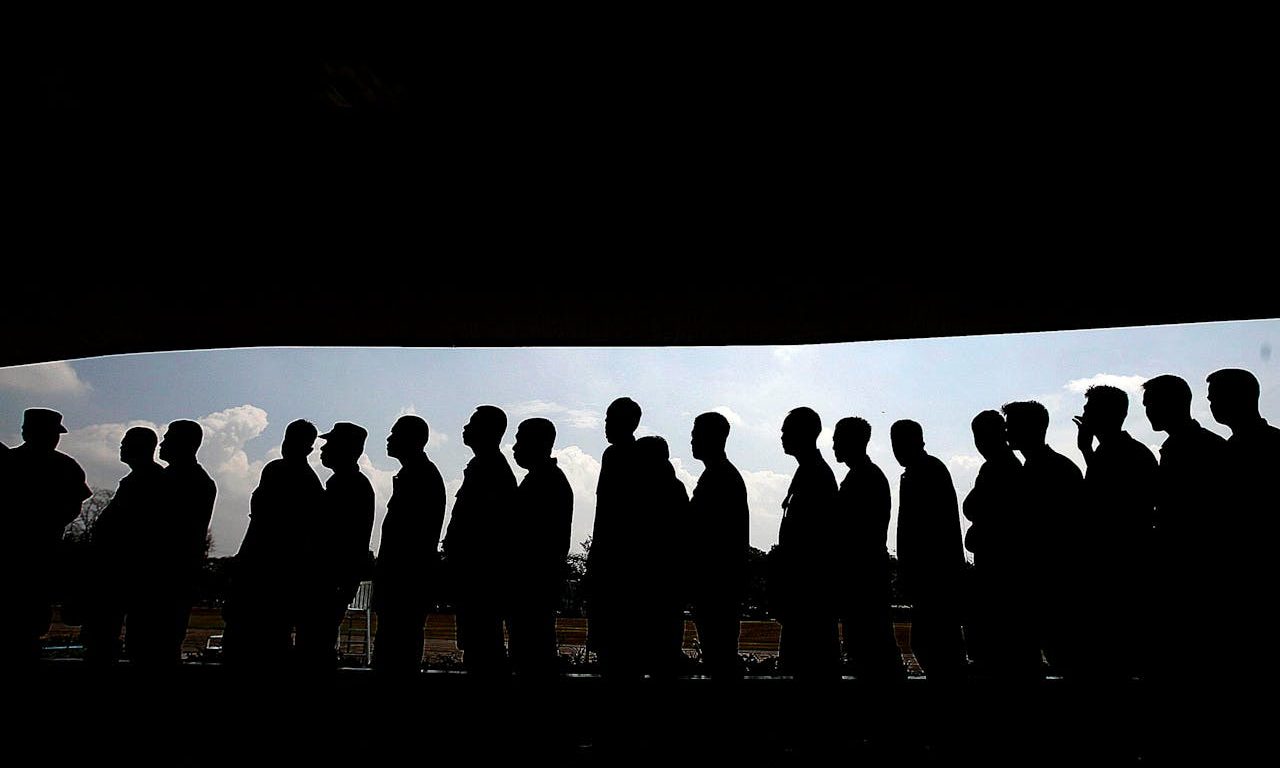
One of the main characteristics of an economic depression, with direct effects on society.
Economic depression is a prolonged period of severe recession in which there is a significant drop in economic activity, employment and production in a country or region. During a depression, GDP decreases considerably, unemployment reaches very high levels, and prices and wages are usually reduced, generating lasting effects on the economy and the well-being of the population.
Characteristics of economic depression
Economic depression is distinguished by a number of characteristics that differentiate it from a typical recession and that reflect the deep and lasting impact on the economy and society. Some of the key features include:
- drastic fall in GDP (Gross Domestic Product) : GDP decreases significantly and sustainably. This decline reflects a general contraction in consumption, investment and exports, affecting almost all sectors of the economy;
- High unemployment : During a depression, the unemployment rate is often high, and the labor market takes time to recover. The closure of companies and the lack of job opportunities generate a precarious situation for many people;
- Deflation or uncontrolled inflation : Economic depressions can cause a drop in prices ( deflation ) due to decreased demand. However, a significant currency devaluation can lead to uncontrolled inflation;
- crisis of confidence and low level of consumption : the confidence of consumers and companies falls drastically, generating a crisis of confidence that further reduces consumption and investment. Financial uncertainty leads individuals and companies to save instead of spend, deepening the recession;
- Deterioration of the financial system : Banks and other financial institutions experience significant losses due to increased delinquencies and bankruptcies. This weakens the credit system, making it difficult to access loans and reducing liquidity in the market;
- social and psychological impact : economic depressions affect the quality of life of the population. Rising poverty and inequality , along with prolonged unemployment, often generate social and psychological problems that last beyond the economic crisis.

Markets respond to economic crises with declines that reflect loss of confidence and volatility.
Types of associated crises
An economic depression is usually accompanied by multiple interrelated crises that affect different aspects of the economy and aggravate the overall situation. These types of crises can occur simultaneously or sequentially, amplifying the impact of the economic depression.
Some of the most common types of crises in this context are described below.
Financial crisis
It is characterized by the fall of the stock market, something that affects the stability of assets and increases the risk for investors and companies.
Credit crisis
Confidence in the lending system declines, making access to credit more difficult for both individuals and businesses. This limits economic growth and causes a reduction in consumption, worsening the economic recession.
Banking crisis
During a depression , banks often face liquidity and solvency problems due to high levels of bad debts and loss of value of their assets, leading to bailout or even closures.
Debt crisis
The national debt, as well as that of companies and households, becomes unsustainable. The problems in paying them generate defaults, restructuring and loss of confidence in the markets.
Real estate crisis
Oversupply and falling demand in the real estate market drastically reduce property values. This may be due to a speculative bubble : home prices rise unrealistically due to speculation rather than solid economic fundamentals. This crisis affects owners, builders and banks that granted mortgage loans.
Liquidity crisis
In times of depression, businesses and banks have difficulty maintaining enough cash to operate, severely affecting the flow of money and worsening the recession.
Eurozone crisis
In the context of the European Union, the recession may intensify due to the economic difficulties of member countries in meeting their fiscal and financial obligations, which affects the stability of the eurozone. During this crisis, institutions such as the IMF (International Monetary Fund) and the World Bank can step in to provide financial assistance. In addition, the Federal Reserve (Fed) and other central banks may adjust their monetary policies to mitigate the effects of the crisis on the global financial system.
Subprime mortgage crisis
The granting of subprime loans, especially in the real estate sector, leads to a wave of defaults that affects banks and triggers negative effects on the global financial system.
energy crisis
Lack of access to affordable and secure energy sources can slow production and increase costs, deepening the economic crisis.
Food crisis
The rise in food prices and scarcity can increase poverty and inequality, affecting the health and well-being of the population and generating social instability. This crisis is particularly acute in developing economies, where resources are limited. Additionally, countries may be forced to issue government bonds to finance food imports and assistance programs, which may increase their debt and further complicate the economic situation.

Government responses to an economic depression seek to stabilize the economy and restore confidence.
Economic policies in response to a depression
In the face of an economic depression, governments and central banks implement various strategies to try to stabilize the economy and stimulate growth. These policies, aimed at both demand and supply, seek to stop the recession and reduce the impact on the population.
Below are some of the main policies applied in these cases:
- Fiscal policy : Governments can increase public spending and reduce taxes to stimulate consumption and investment, thus improving economic activity. These measures, however, usually increase the budget deficit and debt ;
- Monetary policy : Central banks adjust the interest rate and other tools to influence the amount of money in circulation. Reducing rates can encourage consumption and investment, but it also entails risks such as the emergence of rampant inflation ;
- stimulus policies : include aid packages, subsidies and employment programs that seek to stimulate key sectors of the economy, increasing spending and promoting recovery;
- political instability : economic crises can lead to a context of political instability, with changes in leadership or social tensions that complicate the making of effective and timely decisions to face the recession;
- Exchange rate policy : Authorities can intervene in foreign exchange markets to devalue or revalue the currency and improve international competitiveness. These interventions seek to balance the trade balance and stabilize the economy, although they often generate secondary effects on trade and investment.
